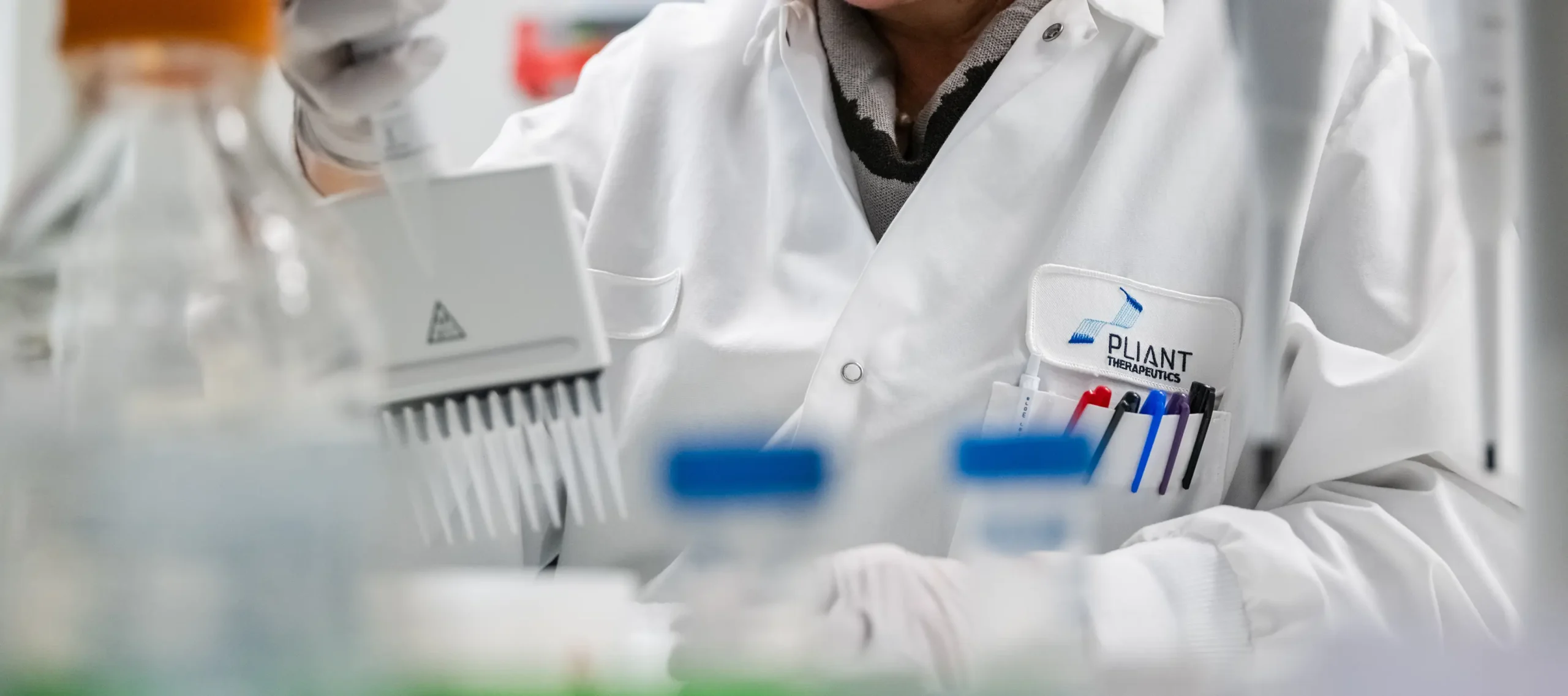

World-Class Drug
Development Capabilities
(PLN-74809)
Dual selective inhibitor of
αvβ6/αvβ1
Phase IIb / III

PLN-74809 is an oral small-molecule dual-selective inhibitor of αvβ6 and αvβ1 integrins for the treatment of IPF and PSC.
While present at very low levels in healthy tissues, these integrins are upregulated in the lungs of IPF patients and the bile ducts of PSC patients where they activate TGF-β, a key driver of the fibrotic process. Blocking these integrins is designed to stop TGF-β activation, potentially halting the growth of scar tissue.
PLN-74809 has received Fast Track Designation and Orphan Drug Designation from the U.S. Food and Drug Administration (FDA) in IPF and PSC and Orphan Drug Designation from the European Medicines Agency (EMA) in IPF and PSC.
We announced positive data from the Phase 2a trial in patients with IPF. BEACON-IPF, a global Phase 2b/3 clinical trial, was recently discontinued.
Our oncology program focuses on selective inhibition of αvβ8, an integrin that can activate TGF-β in the tumor microenvironment, causing an anti-inflammatory effect and potential resistance to immuno-oncology therapeutics such as checkpoint inhibitors.
We recently announced interim Phase 1 data with antitumor activity observed with confirmed partial responses in 50% of patients at highest dose tested to date, across multiple tumor types.
PLN-101325 is an anti-integrin mAb of α7β1
Phase I

Muscular dystrophy comprises a group of inherited diseases, all characterized by inborn errors in dystrophin, a protein that anchors muscle cells to the extracellular matrix and facilitates contraction. The lack of dystrophin results in muscle cell damage upon contraction, causing a progressive loss of muscle function over time.
We have identified PLN-101325, an α7β1 integrin activating antibody that acts as a compensatory anchor for muscle cells in patients with Duchenne muscular dystrophy, as well as other types of muscular dystrophy. Utilizing PLN-101325 to activate α7β1, we have shown in animal models the ability to increase muscle strength and decrease muscle damage caused by contraction. This program is currently Phase 1 ready.
Expanding Possibilities
We are evaluating the potential benefits of our product candidates outside of their lead indications. Our product candidates have shown anti-fibrotic activity in multiple animal models as well as live human tissues in indications outside of IPF. We will continue to evaluate additional indications to maximize the potential of our pipeline.


